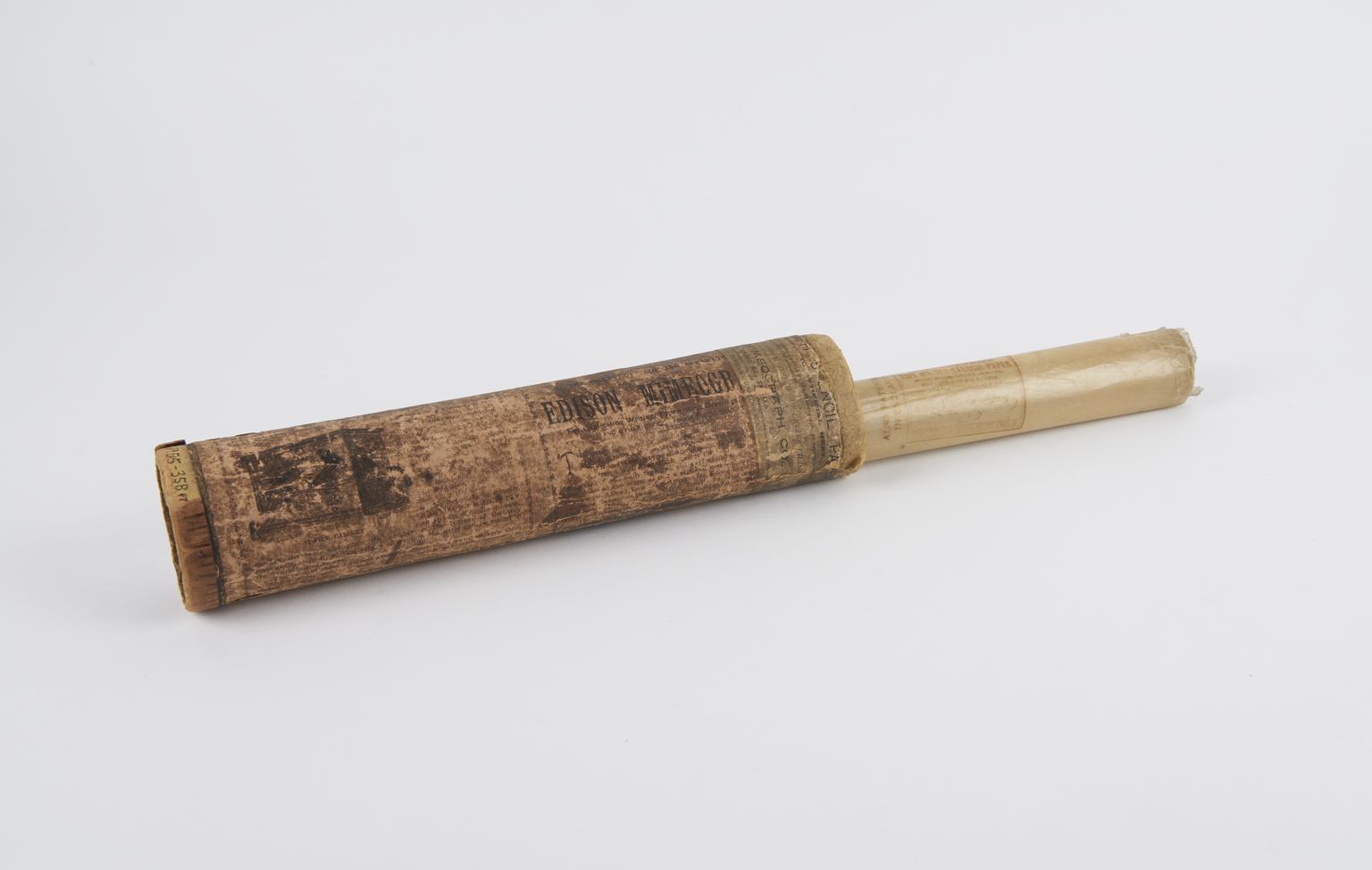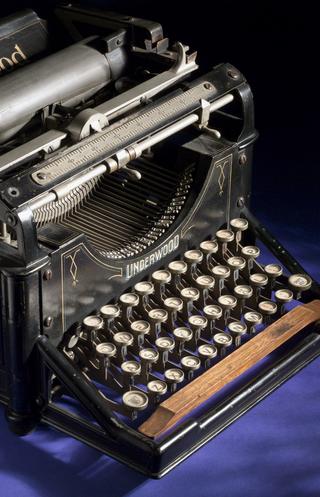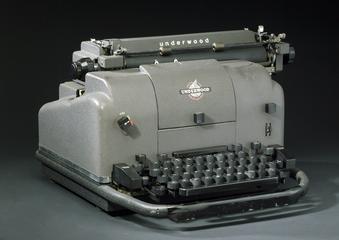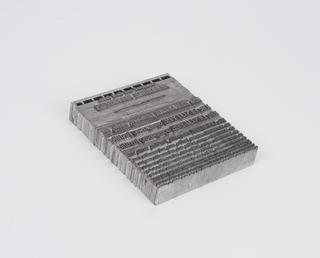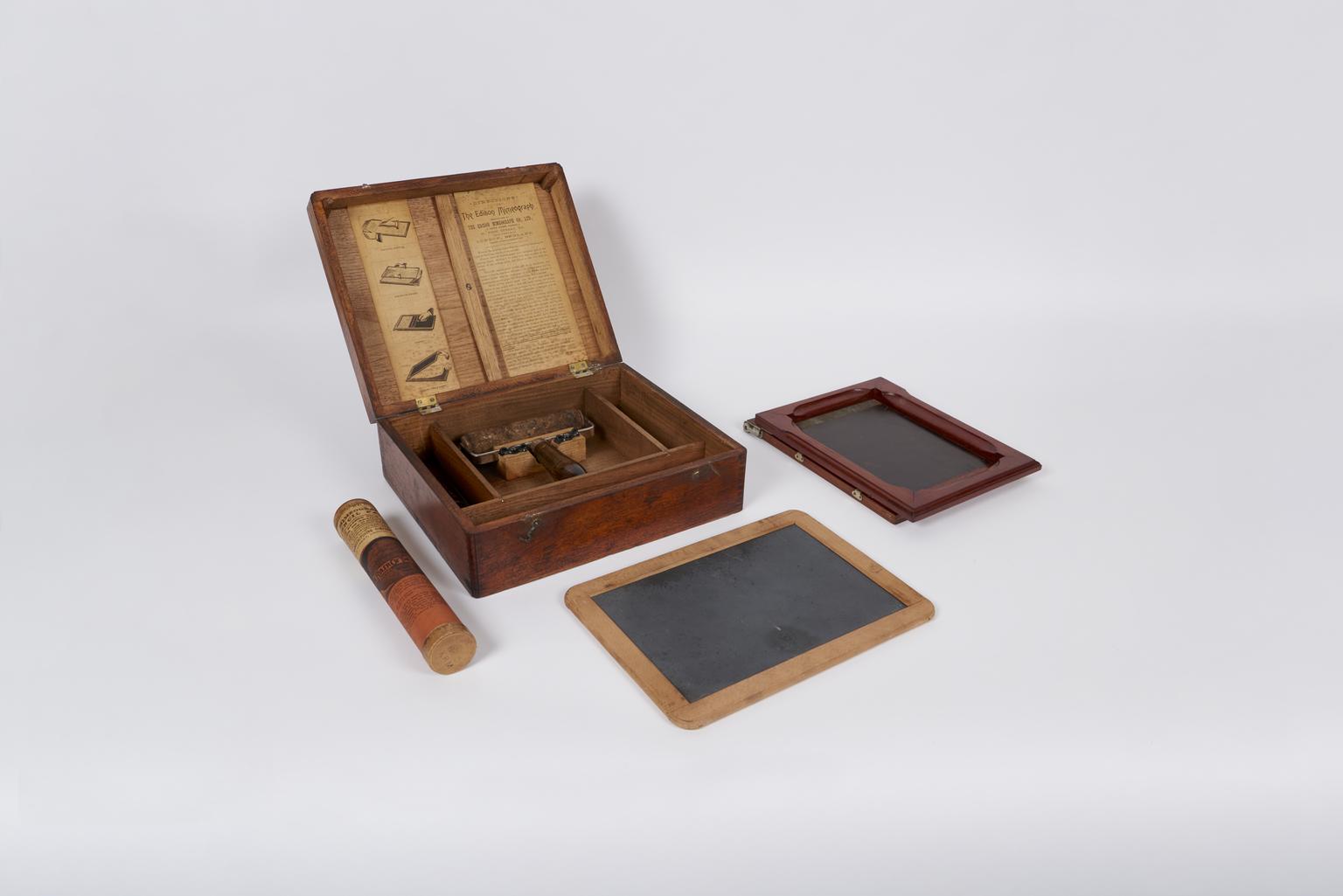
The Edison Mimeograph duplicating machine, London
The Edison Mimeograph duplicating machine in wooden box, with roller, printing frame, writing plate, board and a cardboard tube containing stencil paper, made by the Edison Mimeograph Company, London, c.1890s
More
The Mimeograph was a duplicating machine invented by Albert Blake Dick in 1884. The name was a combination of Greek "mimos" (imitation) & "graphos" (writing).
The device had some similarities to Thomas Edison’s electric pen, as the stencil-making process was covered by one of Edison’s many patents. This meant Dick would have to work with Edison to get his product off the ground, but Edison was not known for working with other companies.
However, the electric pen was losing popularity by this time, so Edison invested in the mimeograph, with the licence agreement allowing his name to be used for marketing purposes. Strangely, some versions of the product failed to reference the A. B. Dick company at all!
The first Mimeograph went to market in 1887, using Edison’s patented flatbed copying mechanism, with indentations made in stencil paper which are then rolled over with ink. This allowed many copies to be made at once, like an early photocopier. This version of the device dates to the early 1890s and was marketed under a British arm of ‘The Edison Mimeograph Co.’, but little is known about the company.
In 1905 the mimeograph was adapted to a rotary system, which would ink over the stencil paper and create copies as it rotated. The Mimeograph remained popular until the 1960s, when modern photocopiers gradually made the technology obsolete.
- Object Number:
- 1955-358/1
- type:
- duplicating machine
- Image ©
- The Board of Trustees of the Science Museum
